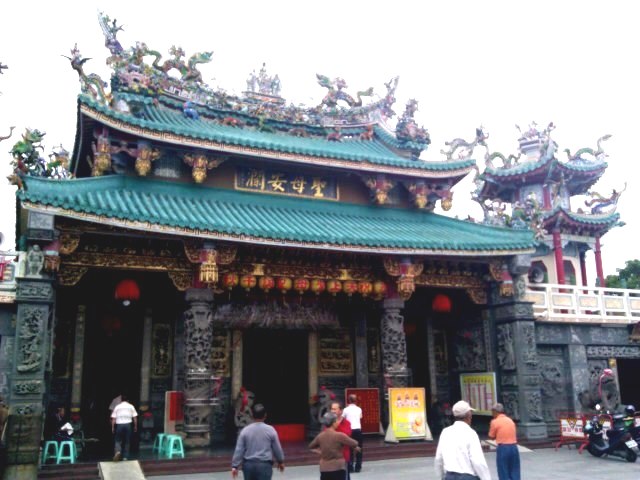Institute Clingendael dug into the potential of economic relation between Taiwan, the Netherlands and Europe. The researchers see a lot of room for improvement, much of the potential is still untapped.
The aim of the report is to assess the consequences of change in cross-Strait relations and of the proliferating trade diplomacy in East Asia for EU–Taiwan economic cooperation. The report closes with policy recommendations for the Dutch and Taiwanese governments as well as for the European Union (EU) for strengthened EU–Taiwan economic ties, in particular by liberalizing trade through a Bilateral Investment Agreement (BIA) or a more comprehensive Economic Cooperation Agreement (ECA). It also touches on the consequences of recent developments on the attractiveness of Taiwan as a regional hub for European firms.
By the standards that the EU has set for itself, Taiwan — which is the Asia–Pacific region’s fourth most competitive economy and the EU’s seventh largest trade partner in Asia — should be high up on Brussels’ wish list of partners with which to negotiate trade liberalization deals. This is all the more so since the EU inked its first free-trade agreement in Asia with South Korea back in 2011, and is negotiating economic deals with other countries in the region, including Japan, India, Malaysia, Vietnam and, of course, China. Furthermore, the EU has a stake in East Asia’s stability — as shown by the September 2012 statement in which the EU expressed concern regarding rising tensions in East Asia’s maritime areas, in which both China and Taiwan are stakeholders. Other EU statements in 2010 and 2012 welcomed the concrete and positive steps in cross-Strait relations.
As the authors of this report point out, the EU and its member states would be wise to initiate talks on economic agreements with Taiwan, provided that certain conditions are met. These conditions relate to timing — especially in relation to the EU–Taiwan–China triangular relations. The deepening of economic talks between China and Taiwan through the 2010 Economic Framework Agreement (ECFA) and subsequent cross-Strait agreements creates greater space for manoeuvre for Taiwan in its economic relations with other countries. The fact that the EU and China are negotiating a BIA constitutes a second crucial enabler, as third parties that wish to negotiate economic agreements with Taiwan should have similar trade agreements and good relations with China. Other preconditions relate to expected economic benefits — including a demonstrated willingness by the Taiwanese government to respond to European calls to reduce specific market barriers — as well as to political and normative considerations of the EU’s role in the world.
Earlier studies have explicated the economic benefits for the EU and Taiwan of trade and investment liberalization. This report reviews these findings and places these in a comprehensive perspective, by pointing to several political and normative considerations that should follow economic considerations. Especially, there is value for the EU and its member states in recognizing the symbolically important role of Taiwan as a transparent and rulesbased economic and democratic system, and in levelling the playing field for Taiwanese companies that (wish to) do business in Europe in an attempt also to attract more Taiwanese investment in the continent.
Third parties with an interest in stability and prosperity in the region have reason to see to it that the precarious status quo in cross-Strait relations is maintained. One way of doing so is to contribute to economic prosperity in Taiwan, which is also in the interest of mainland China. As Taiwan’s third largest trade partner — after China and the United States — the EU is clearly a relevant player.
Summing up, there appears to be little reason why the EU should not open talks with Taiwan on a BIA, while talks on sectoral agreements or a full-fledged ECA may follow later. Brussels can make use of the diplomatic space provided by the ECFA and related cross-Strait agreements, while staying within the ‘One China’ policy and making sure that that Beijing is not opposed to the opening of such talks. Comparative cases of completed and ongoing economic negotiations between Taiwan and Japan, the United States and other countries that do not recognize it diplomatically, provide useful context.
While the Netherlands is unlikely to take the lead in this process, mainly for historical reasons that date back to the so-called ‘submarine affair’ of 1981, the Dutch government is in a position to support initiatives undertaken by the European Commission and/or other EU member states. Healthy commercial relations between the Netherlands and Taiwan are typical of the island’s relations with other EU member states, sixteen of which now have representative offices in Taipei. The Taiwanese government, for its part, has reason to address the longstanding European calls for regulatory reform in Taiwan seriously, and to make a more compelling case as to why Taiwan is attractive as a regional hub for European and Dutch firms in particular.
Auteurs:
Maaike Okano-Heijmans is a senior research fellow at the Clingendael Institute and the lead author of this report.
Sander Wit was affiliated to Clingendael as a research assistant from August 2014–January 2015.
Frans-Paul van der Putten is a senior research fellow at Clingendael.

